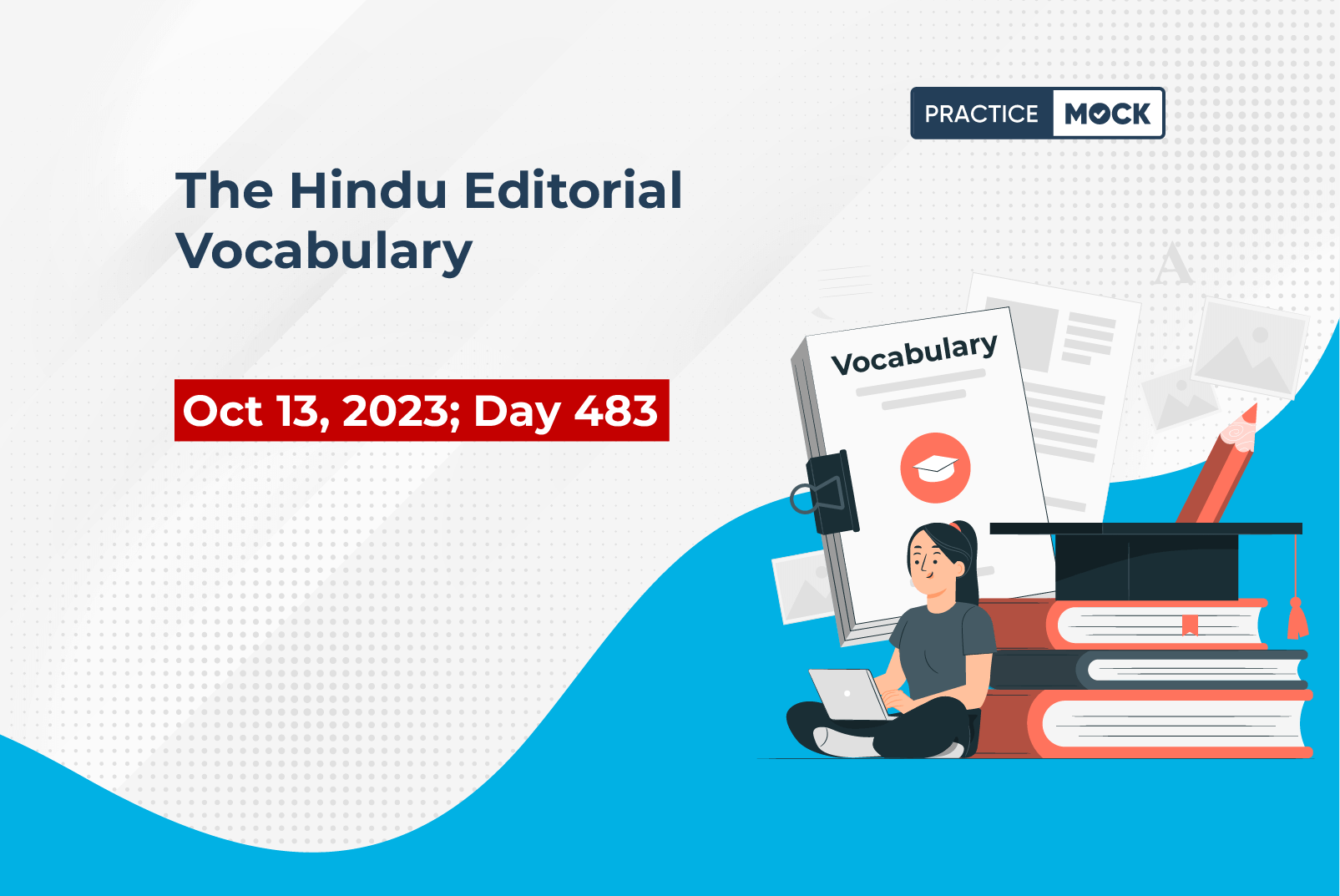| Difficult Word/ Phrase | Contextual Sense |
| Vendetta | a serious argument or dispute between two people or groups which lasts for a long time |
| Resurrection | bringing back something that has not existed or not been used for a long time |
| Smack of | to seem to contain or involve (something unpleasant) |
| Intolerance | the fact of refusing to accept ideas, beliefs, or behaviour that are different from your own |
| Imputation | a charge or claim that someone has done something undesirable; an accusation |
| In the wake of | following (someone or something), especially as a consequence |
| Betray | Reveal unintentionally |
| Antagonist | Someone who offers opposition |
| Jeopardise | Pose a threat to; present a danger to |
| Interlocutor | A person who takes part in a conversation |
| Abrogation | an official or legal cancellation |
| Entail | to involve something |
Vendetta (a serious argument or dispute between two people or groups which lasts for a long time) without limit: On the resurrection (bringing back something that has not existed or not been used for a long time) of an old case against Arundhati Roy
Reviving 13-year-old case against Arundhati Roy smacks of (to seem to contain or involve (something unpleasant)) intolerance (the fact of refusing to accept ideas, beliefs, or behaviour that are different from your own)
The resurrection of a criminal case dating back to 2010 against writer-activist Arundhati Roy and an academician from Kashmir seems ill-motivated. There can be no other explanation for Delhi Lieutenant Governor V.K. Saxena granting sanction to prosecute Ms. Roy and Sheikh Showkat Hussain, a former Kashmir University professor, for alleged divisive speeches and imputations (a charge or claim that someone has done something undesirable; an accusation) against national unity made in New Delhi as far back as on October 21, 2010. Coming in the wake of (following (someone or something), especially as a consequence.) the recent arrest of Prabir Purkayastha, the Editor-in-Chief of NewsClick under an anti-terrorism law and other penal provisions, the revival of a 13-year-old case betrays (Reveal unintentionally) intolerance and follows a pattern of vendetta against the state’s perceived civil society antagonists (Someone who offers opposition) and outspoken critics. Significantly, the Delhi Police did not think the speeches merited prosecution for sedition at the time, as sought by a complainant before a Magistrate court. However, a Metropolitan Magistrate rejected the police contention and, on November 27, 2010, directed the filing of a first information report (FIR). The police complied with the order, invoking sections of the Indian Penal Code relating to sedition, statements promoting enmity between different groups, imputations against national integration and statements causing public mischief. The FIR also included Section 13 of the Unlawful Activities (Prevention) Act (UAPA) which seeks to punish “unlawful activities”.
It is known that the government of the day did not wish to pursue any case against remarks made at the conclave titled ‘Azadi: the only way’, as it did not want to jeopardise (Pose a threat to; present a danger to) an ongoing effort to find a political solution to the Kashmir issue through three interlocutors (A person who takes part in a conversation). At a time when much has changed in Kashmir since then, including a spell of elected rule and then the abrogation (an official or legal cancellation) of Jammu and Kashmir’s special status and its division into two Union Territories, it makes little sense to criminalise past political speeches now. Mr. Saxena has approved prosecution for the other offences, but not sedition, as there is a Supreme Court of India bar on proceeding with sedition charges. It is not clear whether the police will press the UAPA charge, as Section 45 of the Act requires the sanction of the Central government, and the rules prescribe strict time limits to obtain it. It must be examined if the prosecution is barred by limitation. Under the Code of Criminal Procedure, the limitation for offences that entail (to involve something) prison terms of up to three years is three years. All three sections for which sanction has been granted — Sections 153A, 153B and 505 — attract a three-year jail term. Even though the Code permits the exclusion of the period during which sanction is awaited while computing limitation, it is unlikely that courts will permit such an exclusion if the sanction itself was sought after the limitation period.
Want to improve your vocabulary further? Download the Lists of Word-Meanings of Previous Months here.
- Sign Up on Practicemock for Updated Current Affairs, Free Topic Tests and Free Mini Mocks
- Sign Up Here to Download Free Study Material
Free Mock Tests for the Upcoming Exams
- IBPS RRB PO Free Mock Test 2024
- IBPS RRB Clerk Free Mock Test 2024
- SSC MTS Free Mock Test 2024
- SSC CHSL Free Mock Test 2024
- SSC CGL Free Mock Test 2024
- GATE Mechanical Free Mock Test 2024
- GATE Civil Free Mock Test 2024
- RRB ALP Free Mock Test 2024
- SSC CPO Free Mock Test 2024
- AFCAT Free Mock Test 2024
- SEBI Grade A Free Mock Test 2024
- IFSCA Grade A Free Mock Test 2024
- RBI Grade A Free Mock Test 2024
- RRB JE Free Mock Test 2024
- NABARD Grade A Free Mock Test 2024
- IBPS PO Free Mock Test 2024
- IBPS Clerk Free Mock Test 2024
- Free SSC Live Test


